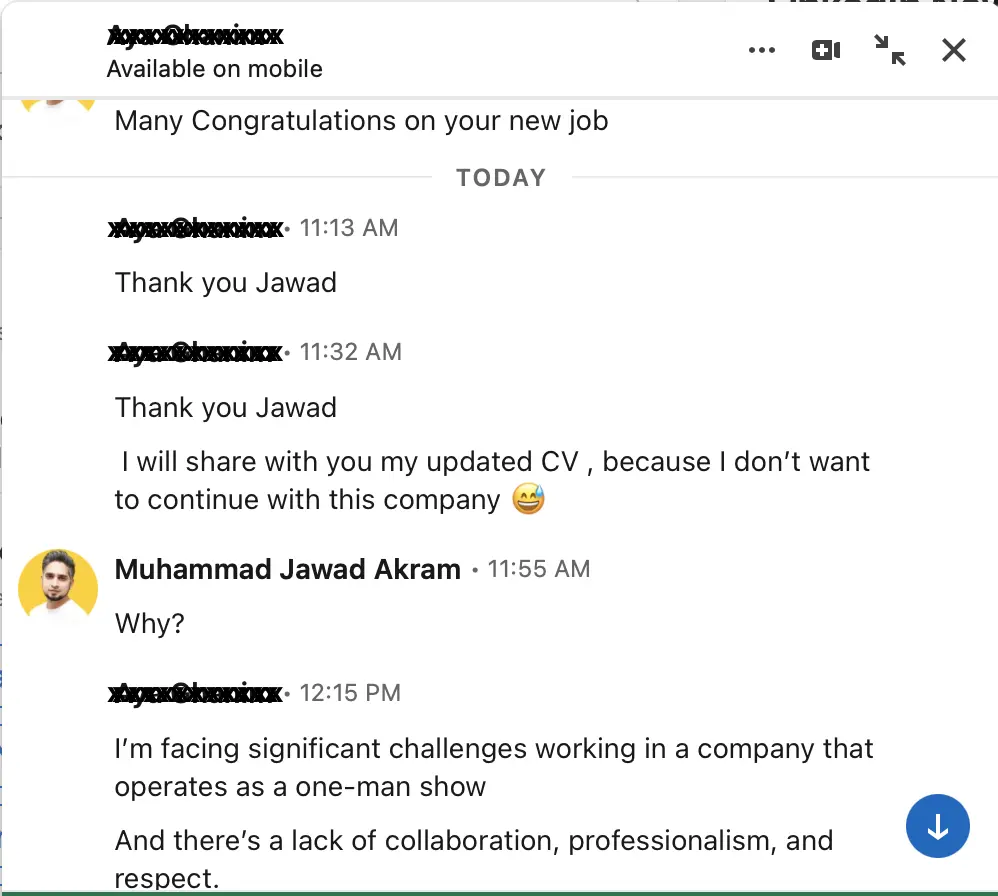In recent weeks, I’ve witnessed a troubling trend that highlights the critical importance of company culture and leadership in today’s business world. Two candidates I recently placed in new positions have already encountered significant issues, with one being terminated due to internal conflicts and another seeking new employment shortly after starting.
The image shows a conversation with a candidate who had just started a new job. Initially celebratory, the tone quickly shifts as the candidate expresses their desire to leave, citing “significant challenges working in a company that operates as a one-man show” and “a lack of collaboration, professionalism, and respect.”
This situation exemplifies the broader issues at play when companies fail to prioritize a healthy work environment. The costs of such oversight are substantial and multifaceted:
- Productivity Loss: When employees leave quickly, companies face a significant dip in productivity, often lasting months.
- Training Costs: Resources invested in onboarding and training new hires are essentially wasted when they depart prematurely.
- Recruitment Expenses: The cycle of hiring, losing, and rehiring staff incurs repeated recruitment costs.
- Employer Brand Damage: Negative experiences spread quickly through professional networks, making future recruitment challenging.
As a recruiter, these situations prompt me to reconsider partnerships with certain employers. It’s clear that company culture, including providing a safe and respectful work environment, is not just a nice-to-have – it’s essential for business success.
CEOs and company leaders must recognize that investing in a positive work culture isn’t just about employee satisfaction; it’s a critical factor in maintaining productivity, reducing turnover costs, and building a strong employer brand. In today’s competitive job market, no company can afford to compromise on creating an environment where employees feel valued, respected, and motivated to contribute their best.


